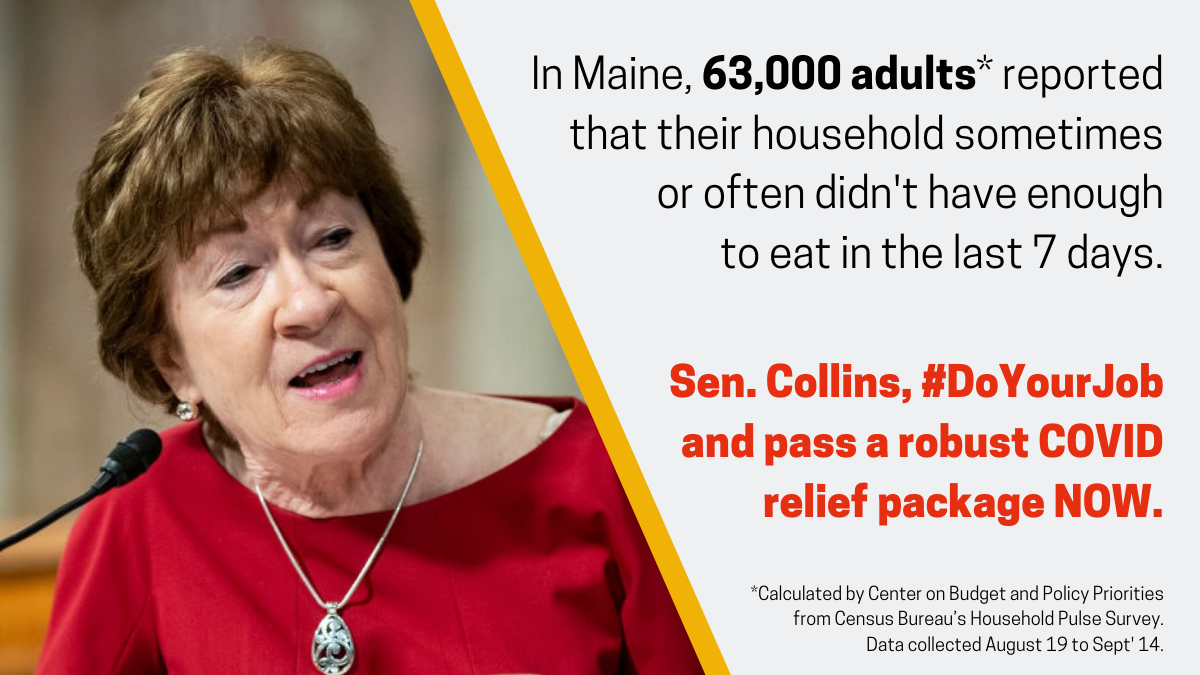
CHN’s COVID-19 Watch: Tracking Hardship October 9, 2020

October 9, 2020
“Altered state” edition. President Trump, infected by COVID-19 and then taking a number of powerful medications, called off COVID-19 negotiations, then urged continued talks for a limited package, then was quoted as calling for a bigger package. He was interviewed saying he was cured by his drugs, but that he might not have needed them, and suggested that he was not contagious – even as more than 30 people in his immediate orbit became infected. Speaker Pelosi, who was attempting to negotiate relief, speculated that the President was “in an altered state.” Hard to tell, but two themes were emerging: resistance to even compromise levels of state and local aid sought by Democrats and whipsaw reactions to Wall Street downturns, as stocks plunged whenever it appeared there would be no deal. The truth is, the economy is anything but strong. Job growth is slowing. We are still 12 million jobs below where we should be. People continue to struggle to put food on the table and pay rent and other bills. The gender and racial disparities are shocking – four times as many women as men have suddenly left the workforce. And we run the risk of an economy that is spiraling ever downward. Economists worry that as businesses cut more jobs, people will have less money to spend, which means they will spend less at stores, restaurants, and other companies, putting those workers at risk.
There is a solution: the Economic Policy Institute estimates that most of our job losses could be reversed if Congress restores the $600/week unemployment benefit and funds state and local aid (see below). These expenditures, along with the other provisions in a comprehensive package, sustain spending, jobs, and people’s lives. Which remain at risk, as COVID-19 cases rise to 7.6 million and deaths approach 213,000.
Meanwhile, Senators remain missing in action. Senators particularly in the states of Arizona, Colorado, Georgia, Iowa, Kentucky, Maine, Missouri, Montana, North Carolina, and South Carolina need to hear from you! Scroll down to see sample tweets that you can send to these senators.
|
Tweet to key Senators: it’s very important that Senators hear our concern, click links below to tweet.
Example tweet message to Senator Collins of Maine:
.@SenatorCollins, #DoYourJob and pass a robust #COVIDRelief package before leaving DC. The people of Maine cannot wait any longer. 63,000 adults are not having enough to eat- that’s 7% of all ME adults.

Click the link below to send a similar tweet to:
AZ: Senator McSally
CO: Senator Gardner
GA: Senator Perdue, Senator Loeffler
IA: Senator Ernst, Senator Grassley
KE: Senator McConnell
ME: Senator Collins
MT: Senator Daines
MO: Senator Blunt, Senator Hawley
NC: Senator Tillis
SC: Senator Graham

